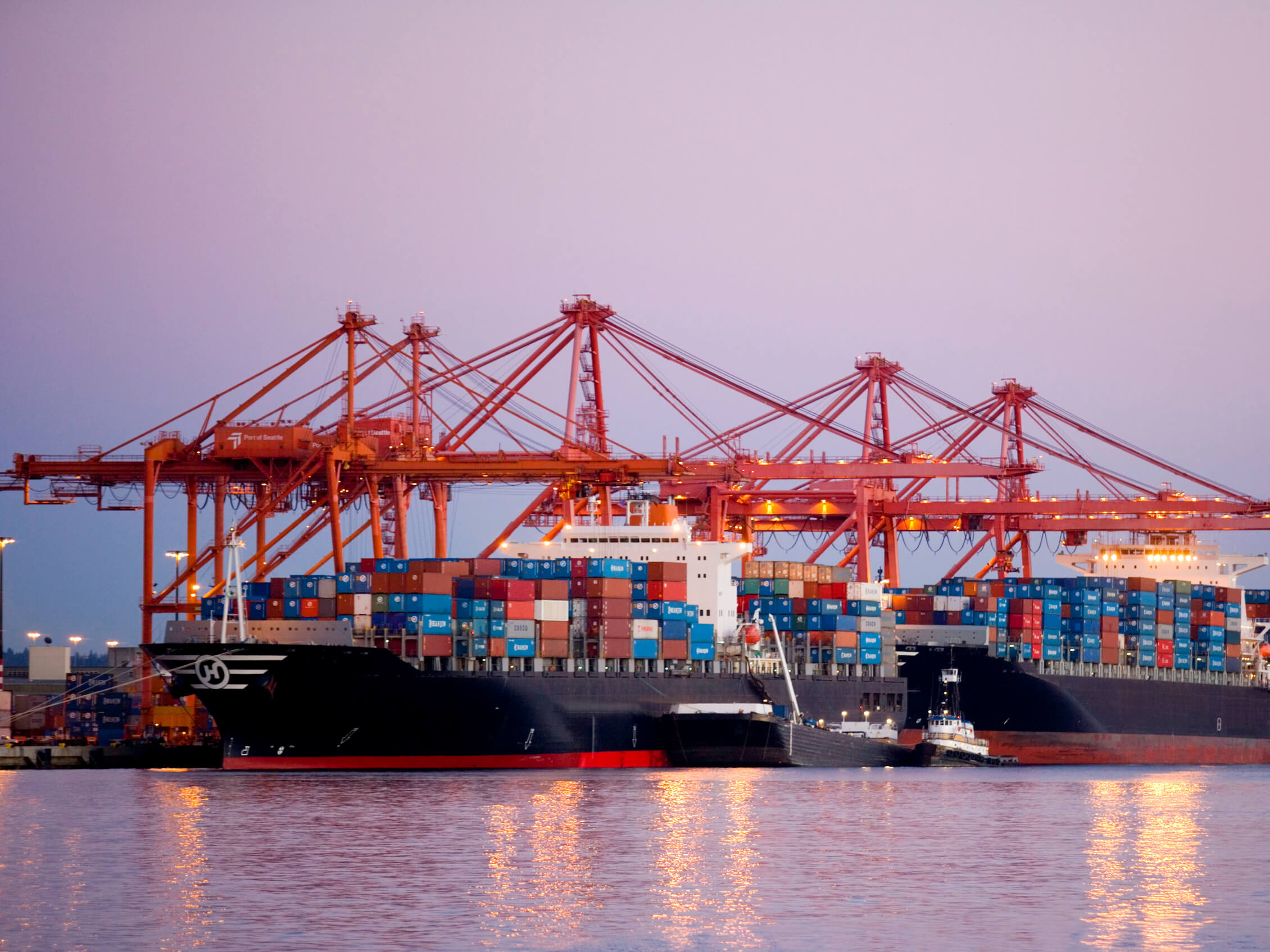Container ships loading at port of Seattle, Washington, at sunset
The United States and China, the world’s two largest economies, are in the throes of economic warfare, attacking each other with tariffs. A tariff is a tax on imports—goods or services from abroad. A trade war can occur if one nation sees another nation’s trading practices as unfair. The Donald Trump administration has accused China of stealing intellectual property and forcing U.S. companies to turn over prized technology as a cost of entering China’s domestic market. President Trump also blames China for subsidizing businesses to keep the prices of Chinese exports low, and then flooding the U.S. market with cheap steel, aluminum, and other products.
When President Trump slapped steep tariffs on billions of dollars’ worth of goods from around the world, in particular from China, the system of global trade was shaken up. Proponents of free trade argue that it makes people and nations richer; they therefore oppose most trade barriers. The hike in U.S. tariffs on imports, even from allies such as Canada and the European Union, was met by retaliation as other countries levied tariffs of their own on U.S. goods. Trump’s policy has been criticized as being protectionist. Protectionism is the attempt by a nation to use restrictions on trade to help its own industries, shielding them from foreign competition. Trump aims to drive up investment and hiring in the U.S. manufacturing sector, while driving down the massive U.S. trade deficit with China.
Higher prices for imported goods and services makes them less attractive, thus nudging consumers toward purchasing from U.S. businesses. But tariffs often have unintended, but predictable, consequences. Because they push up prices of imported raw materials that U.S. companies need, those firms may see their profits shrinking. If they pass through the higher costs to consumers, prices will go up across the board. In addition, tariffs could harm businesses worldwide, especially those dependent on global supply chains.
A prolonged trade war of rising tit-for-tat tariffs could be counterproductive for both the United States and China, but in the short run, they might produce negotiations that could lead to reforms in the Chinese economy. President Trump is betting that China is in a weaker position compared to the United States, and that his pro-growth economic policies have improved the U.S. negotiating position. If Trump can pry open China’s domestic market to freer and fairer trade, U.S. businesses and workers could benefit long term. Leaders of the two nations are set to meet in Argentina at the end of November.
Image credit: © Steve McAlister/Stockbyte/Getty Images
Related Links
- Trade Wars, Trump Tariffs and Protectionism Explained
An in-depth explanation of the issues surrounding tariffs and trade; includes excellent graphics.
(Source: BBC News, July 26, 2018) - Trade Wars and How They Affect You
A popular personal finance website offers a ’splainer on trade wars.
(Source: Balance.com, November 14, 2018) - China Is Paying for Most of Trump’s Trade War, Research Says
Business website updates escalating U.S.-China trade war; includes short video on state of U.S. trade relations with China.
(Source: Bloomberg, November 19, 2018) - Trump Is Winning the Trade War with China—Now It’s Time to Make a Deal
A positive assessment of U.S.-China trade with recommendations for next steps.
(Source: Newsweek, September 5, 2018) - Trade War
Business “dictionary” website defines the concept of trade war.
(Source: Investopedia; accessed November 21, 2018) - Tariff
Also from the business “dictionary” website—Tariffs 101.
(Source: Investopedia; accessed November 21, 2018)




